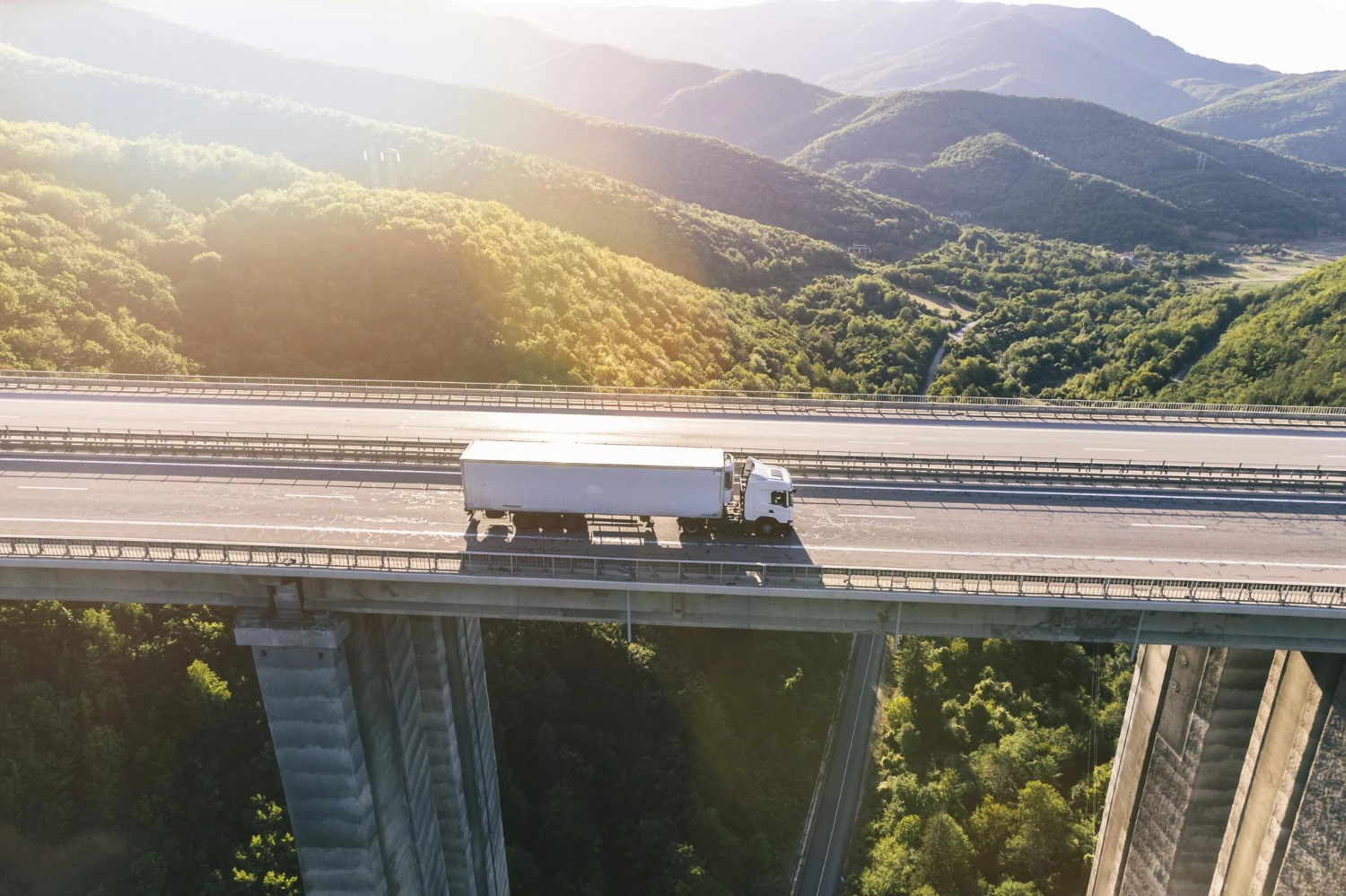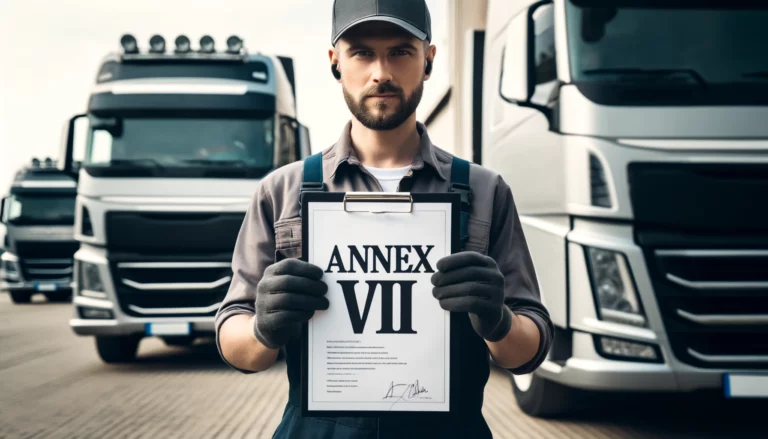Haul or nothing: the best trailers for every kind of waste transport
Efficient and safe waste transport is crucial for environmental management and regulatory compliance. Selecting the appropriate trailer type for specific waste types ensures not only the safety and efficiency of the transport process but also compliance with regulations and environmental protection. This article delves into the various trailer types and their suitability for different kinds of waste, providing a comprehensive guide to help you make informed decisions.
Understanding waste types
Waste comes in many forms, each requiring different handling and transportation methods. Broadly, waste can be categorized into several types:
- Municipal solid waste: Everyday items discarded by the public.
- Construction and demolition waste: Materials generated during building and demolition.
- Hazardous waste: Waste that poses substantial or potential threats to public health or the environment.
- Industrial waste: Byproducts from manufacturing and industrial processes.
- Organic waste: Biodegradable waste such as food and garden waste.
- Recyclable waste: Materials that can be reprocessed into new products.
General guidelines for choosing trailers for waste transport
When selecting a trailer for waste transportation, consider factors such as the type of waste, volume, weight, loading and unloading mechanisms, and regulatory requirements. Ensuring that the trailer matches the specific needs of the waste type enhances safety and efficiency.

Standard tautliner
Design and features: Tautliner trailers, also known as curtain-side trailers, have retractable curtain sides which allow for easy loading and unloading. They are versatile and commonly used for transporting palletized goods.
Suitable waste types:
- Paper waste
- Packaging waste
- General household waste
- Recyclables
Best uses for tautliner trailers
Tautliners are ideal for waste transport that needs protection from the elements but does not require complete enclosure.
Paper waste: Tautliners are perfect for transporting large volumes of paper waste due to their ample loading space and ease of access.
Packaging waste: Packaging waste, often lightweight and voluminous, is efficiently handled by tautliner trailers. Their retractable sides facilitate quick loading and unloading.
General household waste: These trailers can also handle general household waste, providing a flexible solution for municipal waste collection.
Recyclables: Tautliners are suitable for various recyclable materials, ensuring they are protected from the elements during transport.
Tilt trailer
Design and features: Tilt trailers are designed to tilt their load bed for easier unloading of materials. They are robust and can handle heavy, bulky loads.
Suitable waste types:
- Construction debris
- Heavy loads
- Yard waste
- Agricultural waste
Best uses for tilt trailers
Construction Debris: Tilt trailers are perfect for construction debris, providing an efficient way to load and unload heavy materials like concrete and bricks.
Heavy loads: These trailers can handle substantial weights, making them suitable for industrial and construction waste.
Yard waste: Tilt trailers are also ideal for transporting yard waste such as branches, leaves, and garden refuse.
Agricultural waste: They can efficiently transport agricultural waste, including crop residues and manure.
Advantages and limitations:
- Advantages: Easy unloading, high load capacity.
- Limitations: Limited to certain waste types, may require additional equipment for loading.
Flatbed trailers
Design and features: Flatbed trailers have an open platform without sides or a roof, allowing for easy loading and unloading of oversized items.
Suitable waste types:
- Bulky items
- Scrap metal
- Large appliances
- Construction materials
Best Uses for flatbed trailers
Bulky items: Ideal for large, bulky waste items that do not need protection from the weather.
Scrap metal: Perfect for transporting scrap metal and other heavy, irregularly shaped waste.
Large Appliances: Flatbeds are great for moving large household appliances such as refrigerators, washers, and dryers.
Construction materials: They can also transport construction materials like lumber, steel beams, and other oversized items.
Advantages and limitations:
- Advantages: Versatility, ease of access, can transport oversized items.
- Limitations: No protection from weather, requires securement of the load.
Tipper trailers
Design and features: Tipper trailers are designed to be tilted to empty their load quickly. They are commonly used in construction and agriculture.
Suitable Waste Types:
- Loose materials
- Organic waste
- Sand and gravel
- Demolition waste
Best uses for tipper trailers
Loose materials: Tipper trailers excel at transporting loose materials like sand, gravel, and soil.
Organic waste: Ideal for transporting large volumes of organic waste, including garden and food waste.
Sand and gravel: These trailers are highly effective for transporting sand, gravel, and other aggregates used in construction.
Demolition waste: Tipper trailers are well-suited for handling demolition waste, providing an easy unloading mechanism.
Advantages and limitations:
- Advantages: Quick unloading, high volume capacity.
- Limitations: Limited to certain waste types, potential spillage if not properly secured.
Enclosed trailers
Design and features: Enclosed trailers offer complete protection from the elements and secure transportation for sensitive or hazardous materials.
Suitable waste types:
- Hazardous waste
- Secure transportation needs
Best Uses for Enclosed Trailers
Hazardous waste: Enclosed trailers provide the necessary containment for hazardous materials, ensuring safe and compliant transportation.
Secure transportation: These trailers are perfect for waste that requires secure handling, such as medical or electronic waste.
Advantages and limitations:
- Advantages: Protection from weather, secure transportation.
- Limitations: Higher cost, limited to specific waste types.
Walking floor trailers
Design and features: Walking floor trailers have a moving floor mechanism that allows for easy unloading without tilting.
Suitable waste types:
- Municipal solid waste
- Recyclables
- Bulk materials
- Food waste
Best uses for walking floor trailers
Municipal solid waste: These trailers are ideal for transporting large volumes of municipal solid waste due to their high capacity and easy unloading mechanism.
Recyclables: Perfect for transporting recyclable materials, ensuring efficient and safe transportation.
Bulk materials: Walking floor trailers can handle various bulk materials, providing versatility in waste management.
Food waste: They are suitable for large quantities of food waste, ensuring easy and hygienic unloading.
Advantages and limitations:
- Advantages: Easy unloading, high capacity.
- Limitations: Mechanical complexity, maintenance requirements.
Hooklift trailers
Design and features: Hooklift trailers feature a hydraulic hook system that allows for interchangeable containers, providing flexibility in waste transportation.
Suitable waste types:
- Industrial waste
- Interchangeable containers
- Construction debris
- Bulk liquids
Best uses for hooklift trailers
Industrial Waste: Hooklift trailers are ideal for transporting industrial waste, providing flexibility with container options.
Interchangeable containers: The ability to swap containers makes these trailers highly versatile and efficient for various waste types.
Construction debris: These trailers can also handle construction debris, offering a flexible and efficient solution.
Bulk liquids: Hooklift trailers can be equipped with containers for transporting bulk liquids, enhancing their versatility.
Advantages and limitations:
- Advantages: Flexibility, efficiency, ease of container swapping.
- Limitations: Higher initial investment, mechanical complexity.
Refrigerated trailers
Design and features: Refrigerated trailers, or reefers, are equipped with cooling systems to transport perishable or temperature-sensitive waste.
Suitable waste types:
- Medical waste
- Perishable waste
- Biopharmaceuticals
- Temperature-sensitive chemicals
Best uses for refrigerated trailers
Medical Waste: Refrigerated trailers are essential for safely transporting medical waste, ensuring it remains contained and at the proper temperature.
Perishable waste: These trailers are ideal for transporting perishable organic waste, preventing decomposition and odors.
Biopharmaceuticals: They can also transport biopharmaceuticals that require temperature control.
Temperature-sensitive chemicals: Refrigerated trailers are suitable for chemicals that need to be kept at specific temperatures.
Advantages and limitations:
- Advantages: Temperature control, safe handling of sensitive waste.
- Limitations: Higher operating costs, limited to specific waste types.
Drop deck trailers
Design and features: Drop deck trailers have a lower deck height, allowing for the transport of taller or oversized loads.
Suitable waste types:
- Oversized waste
- Heavy machinery
- Large furniture
- Prefabricated structures
Best uses for drop deck trailers
Oversized waste: Perfect for transporting oversized waste items that require extra height clearance.
Heavy machinery: These trailers are ideal for moving heavy machinery and equipment due to their lower center of gravity and high load capacity.
Large furniture: Drop deck trailers can handle large furniture items that require more height clearance.
Prefabricated structures: They are suitable for transporting prefabricated structures, providing the necessary clearance and stability.
Advantages and limitations:
- Advantages: Ability to transport tall and heavy items, stability.
- Limitations: Limited to certain waste types, requires securement of the load.
Tank trailers
Design and features: Tank trailers are designed to transport liquid or gaseous waste, featuring a cylindrical shape and secure containment systems.
Suitable waste types:
- Liquid waste
- Hazardous liquids
- Bulk chemicals
- Sewage
Best uses for tank trailers
Liquid waste: Ideal for transporting various types of liquid waste, ensuring secure and spill-free transportation.
Hazardous liquids: Perfect for hazardous liquids, providing necessary containment to prevent leaks and spills.
Bulk chemicals: Tank trailers can handle bulk chemicals that require secure containment.
Sewage: These trailers are also suitable for transporting sewage, ensuring safe and hygienic transport.
Advantages and limitations:
- Advantages: Secure containment, versatility for liquid waste.
- Limitations: Limited to liquid waste, higher maintenance requirements.
Other tips for efficient waste transport
Choosing the right trailer for mixed waste transport
When dealing with mixed waste, consider the dominant waste type and choose a trailer that can handle it efficiently. It may be necessary to use multiple trailer types or compartmentalized trailers to ensure safe and compliant transportation.
Environmental considerations
Proper waste transportation minimizes environmental impact. Use trailers that are designed to reduce emissions, prevent spillage, and comply with environmental regulations. Consider eco-friendly practices such as regular maintenance and using fuel-efficient routes.
Innovations in waste transport
Advancements in trailer technology are continuously improving waste transportation. New materials, automated systems, and enhanced safety features are making trailers more efficient and environmentally friendly. Stay updated with the latest trends to optimize your waste management practices.
Cost considerations
Balancing cost and efficiency is crucial in waste transportation. While some trailers may have higher initial costs, their long-term savings in efficiency and compliance can justify the investment. Evaluate the total cost of ownership, including maintenance, fuel consumption, and regulatory compliance.
Safety considerations
Ensuring safe waste transportation involves selecting the right trailer and adhering to safety protocols. Train personnel on proper loading and unloading procedures, secure waste properly, and conduct regular inspections to maintain safety standards.
Regulatory compliance for waste transport
Understanding and complying with regulations is essential for waste transportation. Ensure that your trailers meet all local, state, and federal requirements, including those related to hazardous materials, load limits, and environmental protections.
Conclusion
Choosing the right trailer for waste transport is crucial for efficiency, safety, and regulatory compliance. By understanding the specific needs of different waste types and the capabilities of various trailers, you can optimize your waste management operations and contribute to environmental sustainability.






